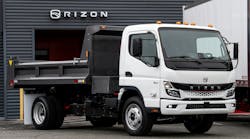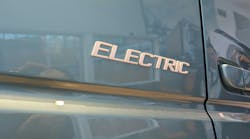While the run-up in fuel prices, the increase in idling regulations and concern about climate change have caused many fleets to make idle reduction (IR) a priority, there has not been much in the way of scientific, third-party comparisons of idling reduction options to help guide the IR selection process.
Help is on the way now, however, thanks to Dr. Linda L. Gaines with the Center for Transportation Research, Argonne National Laboratory. Gaines will present the results of a study conducted with Christie-Joy Broderick Hartman, associate professor, James Madison University and Matthew Solomon, mobile source analyst, Northeast States for Coordinated Air Use Management at the upcoming Transportation Research Board of the National Academies annual meeting January 11-15 in Washington, D.C.
The paper, “Energy Use and Emissions Comparison of Idling Reduction Options for Heavy-Duty Diesel Trucks” analyzes and compares the “full-fuel-cycle” effects of nine technology options, including idling a 2001-compliant model truck; idling a 2007-compliant model truck; using an auxiliary power unit (APU) for heating and cooling; using an APU with a diesel particulate filter for heating and cooling; using a direct-fired heater for warmth and an APU for cooling; using a direct-fired heater and a “storage” cooling system; using a direct-fired heater for warmth and electrified parking spaces for cooling; and using electrified parking spaces for heating and cooling.
(Continued)
The analysis Gaines and her colleagues offer incorporates direct impacts at the truck as well as upstream energy use and emissions estimates. It also compares the effects for the United States and seven individual states: California, Florida, Illinois, New York, Texas, Virginia and West Virginia. Among their findings: total particulate emissions from electrified parking spaces were greater than those from a 2007 truck, while the lowest energy use, CO2 emissions and NOx emissions were seen with a direct-fired heater for warmth combined with electrified parking spaces for cooling.
Gaines also discusses several factors, such as climate and location, which influence the impacts from idle reduction technologies, however, making the optimum technology choice more complex for fleets and for others working to reduce emissions in particular regions and globally.


